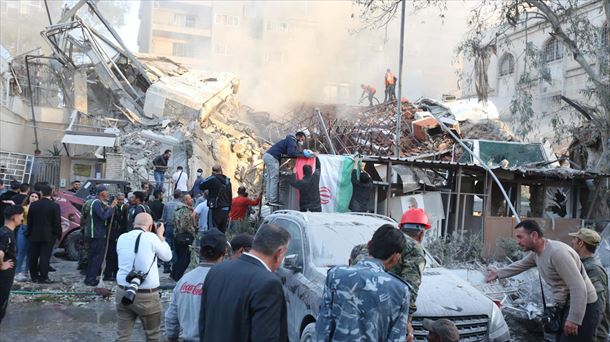They have also stressed that the Iranian authorities also violated international laws in their retaliation against Israeli territory.
United Nations rapporteurs stated this Tuesday that Israel violated international law with his April 1 bombing of the Iranian Consulate in the Syrian capital, Damascus, killing seven members of the Revolutionary Guard. This attack led Tehran to respond on Saturday with a drone and missile attack against Israeli territory.
“All countries are prohibited from arbitrarily depriving people of their right to life in military operations abroad, including in operations against terrorism,” he said, before insisting that “killings on foreign territory are arbitrary when are not authorized by International Law.”
Thus, they have argued that Israel does not appear to have carried out an attack in self-defense because it has not presented evidence that Iran was committing an “armed attack” and they have stressed that the Israeli authorities have not presented legal justification for the bombing. or report thereof to the United Nations Security Council, as required by the article 51 of the UN Charter.
“Therefore, Israel’s attack violated the prohibition on the use of armed force against another State under the article 2(4) of the Charter“, they explained, while emphasizing that “illegal force was not only used against the Iranian Armed Forces, but also against Syrian territory.”
In this sense, they recalled that “the Israeli attack was partially launched from the Golan Heightswhich is an illegally annexed Syrian territory” and have stressed that those involved in the attack could have also committed crimes under an international treaty against terrorism dating back to 1971.
“It is a crime to violently attack the official premises or private accommodation of a diplomat where it is likely to endanger him. Iran, Israel and Syria are part of this treaty and have criminal jurisdiction over this type of crimes,” they stated.
On the other hand, they have stated that Iran’s response also represents a prohibited use of force under International Law and have argued that, although the bombing on April 1 was serious enough to be classified as an “armed attack” , Tehran had no right to self-defense on April 13, since the attack was over.
Thus, he has stated that self-defense is only legal when it is necessary to stop an attack in progress and have added that “the response by force, punishment or deterrence is illegal”, while adding that, in this same way, the initial right to self-defense after the attacks of April 13 have already ended, once they were repelled.
“These attacks in response violate state sovereignty and represent a serious escalation of the conflict in a region that is already on the knife edge,” they warned.
Source: Eitb
I am Michael Melvin, an experienced news writer with a passion for uncovering stories and bringing them to the public. I have been working in the news industry for over five years now, and my work has been published on multiple websites. As an author at 24 News Reporters, I cover world section of current events stories that are both informative and captivating to read.

